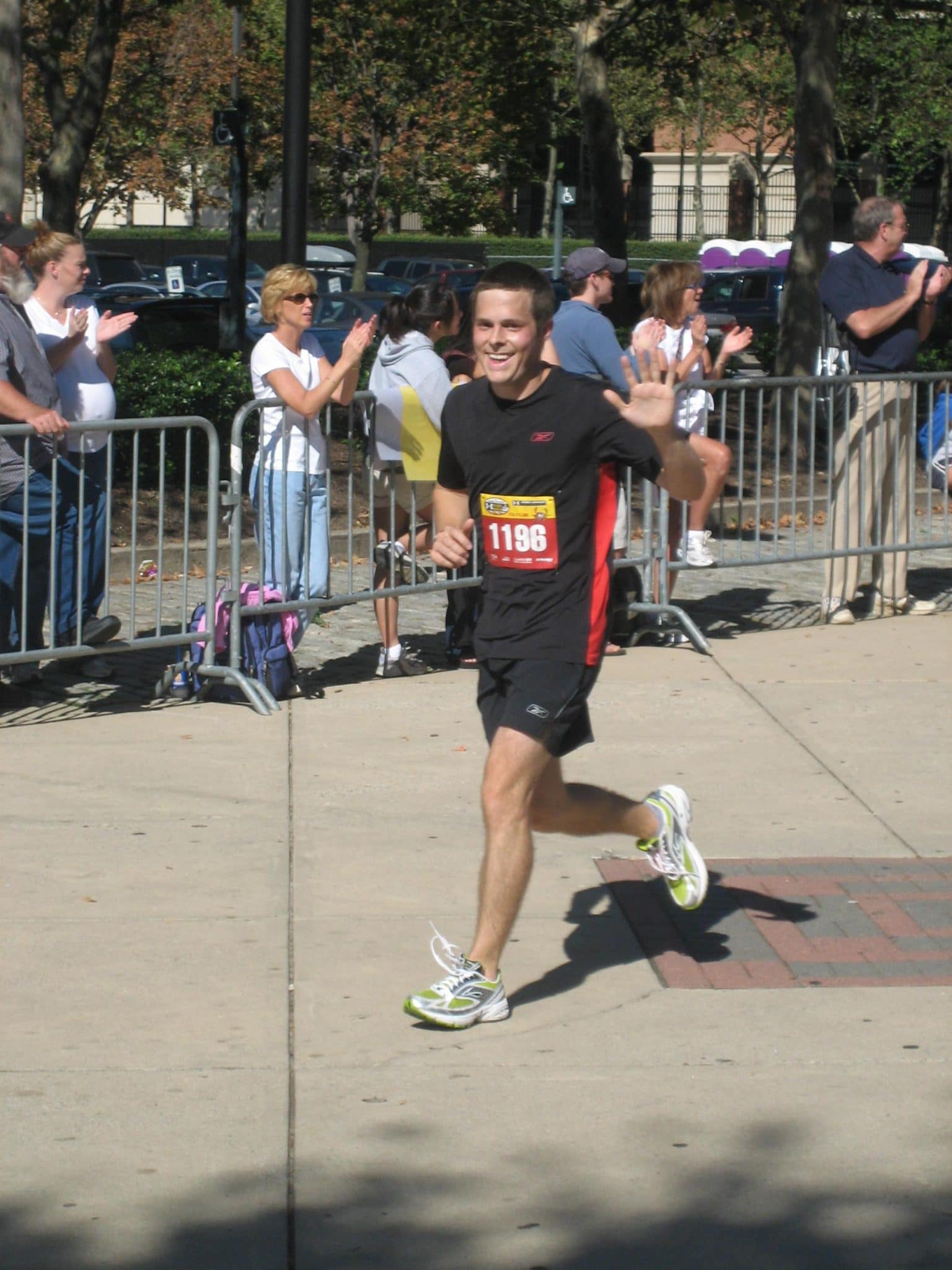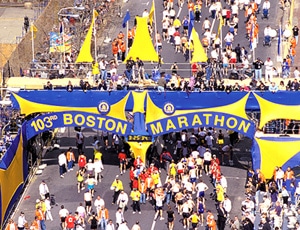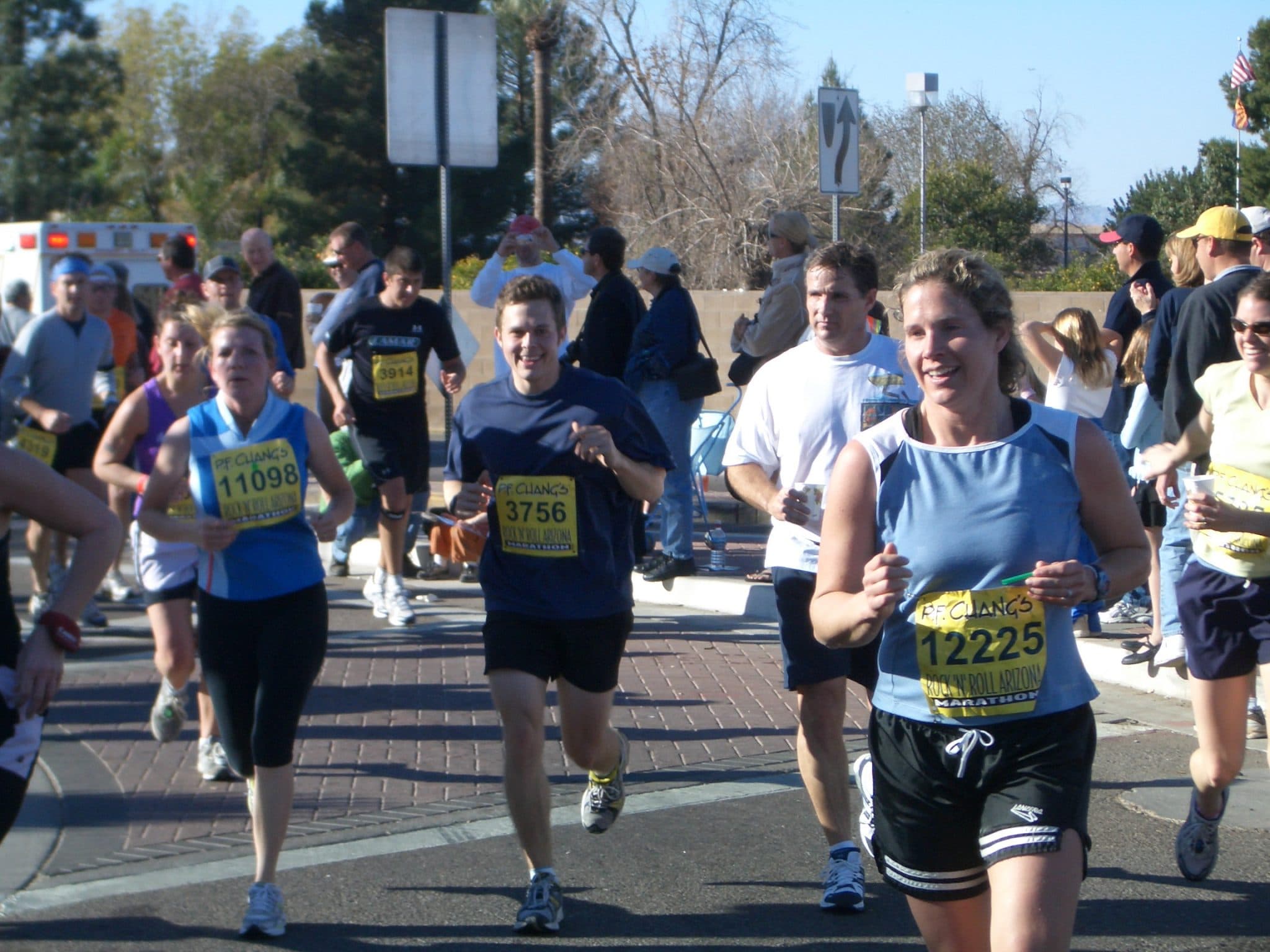
How I Plan to Qualify for the Boston Marathon
I mentioned in an earlier post that my goal, for as long as I’ve been running marathons, has been to qualify for Boston. For my age group, this requires a time of 3:10:59 or better in an approved marathon. That’s 7:17 per mile, for 26.2 miles. My personal best so far is 3:20:30, at the Disney Marathon this last January. So the difference is roughly 22 seconds per mile.
No question about it; that’s a huge amount of time to knock off. But here’s why I think it can happen in my next marathon. My five marathon times to date, from longest ago to most recent, are as follows: 4:53, 3:50, 3:36, 3:24, 3:20. Big improvement each time. Diminishing returns, to be sure, but returns nonetheless.
So what am I going to do that will give me a ten-minute improvement, when my last improvement was only four minutes? First of all, I’ve chosen to run the Wineglass Marathon in Corning, New York, on October 4th of this year. This is a really fast marathon. I don’t really know what kind of difference a fast course makes, but I’m told that it’s significant. The second, more important reason that I believe I’m going to do it this time is that I have almost six months to train. And I’m starting with a decent mileage base, having trained for and run two marathons in the past six months.
So that’s why I have a lot of confidence that it’s going to happen this year. Experienced runners, please don’t tell me that this goal is too big and I’ll end up being disappointed. Boston has been my goal in every marathon I’ve run, and even though I haven’t come close yet, I feel proud every time I cross that finish line. So don’t worry about my tender psyche.
Marathon Training Program
Here’s how I plan to do it. I have a 16-week training program (called FIRST, from the book Run Less, Run Faster) that I was making huge improvements with before my knee started hurting about six weeks ago (it’s better now). This leaves me nine weeks before the training program begins. I’ll continue strength training during this time, doing front squats, deadlifts, leg curls, and some moderate upper body work, as I’ve been doing for the past few months. In addition to getting stronger, I’ll build up mileage and make sure that my knee is completely healed. I’ll do this with running and core workouts from the Core Performance Endurance
program, essentially hill and interval workouts that last about 45 minutes. This is the program I’ve used to train for my past two marathons. And I’ll start my long runs next weekend at about eight miles, building up to 20 miles or so by the time the FIRST program begins. At this point I should be doing 30-35 miles per week.

In between running workouts, the FIRST program recommends cross training rather than slow running. The aim of this is to avoid injury by giving your joints and running muscles a rest. So I’ll swim on some of these days, since triathlons are another goal of mine. But I’m not going to completely avoid easy running. I really feel that running lightly in between intense workouts allows my running muscles to recover in a way that swimming doesn’t achieve, and I think the lack of these runs is part of the reason I got hurt a few weeks ago.
So that’s the plan. If it works out and I qualify for Boston in October, then having declared this goal to so many readers and sharing my progress with you will make it all the more rewarding. And if it doesn’t happen, then you can write all kinds of disparaging comments and tell me that you knew all along that I couldn’t do it. I would enjoy that.
Finally, I’d love to get input from the more experienced runners who read this blog. Is my training plan sound? Have you heard anything about the FIRST program? What about cross training versus easy runs on off days? Should I shave my already sparse body hair? Thanks in advance for any help you can give me.
This post is part of 10-part series on qualifying for the Boston Marathon. Check out the rest!










